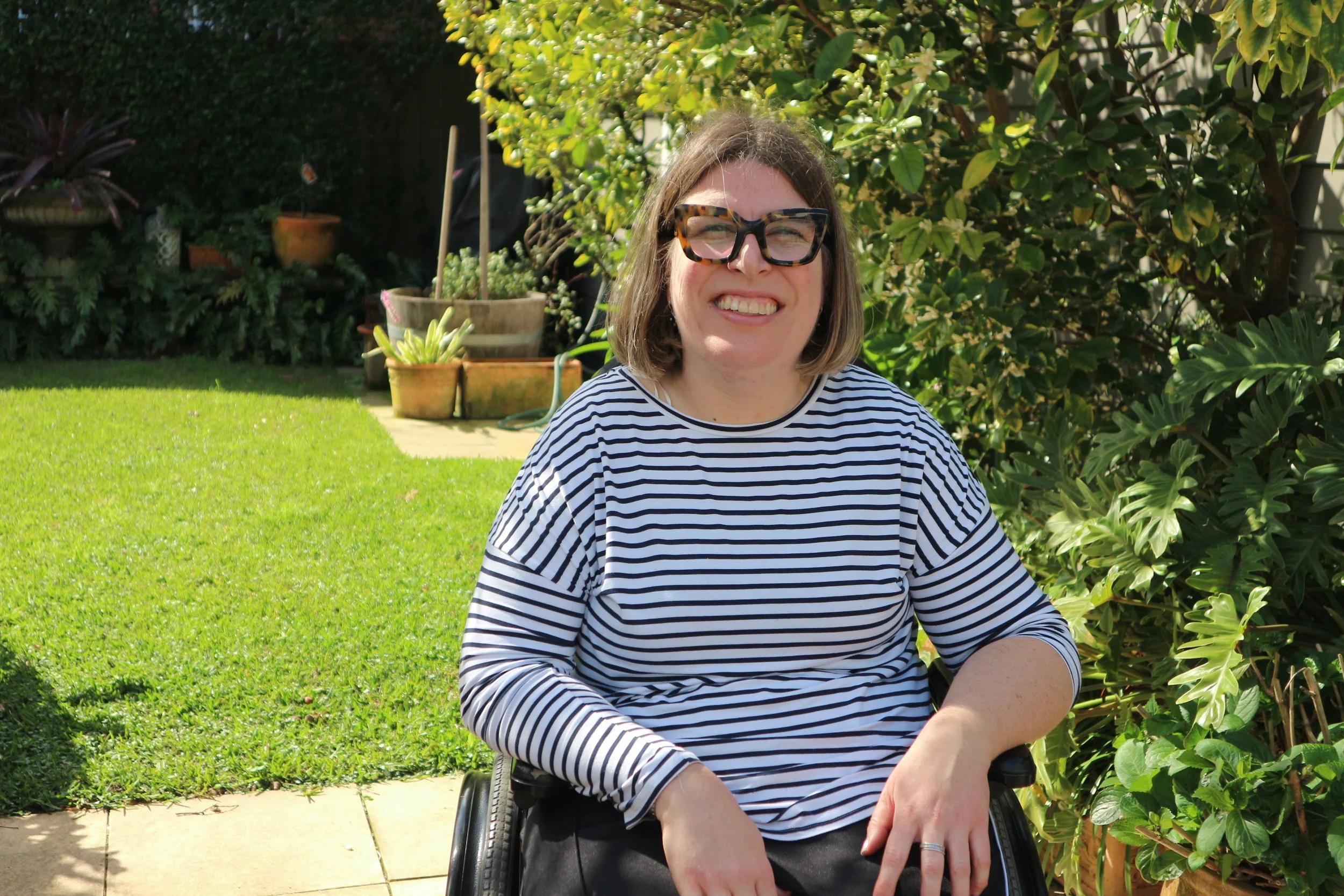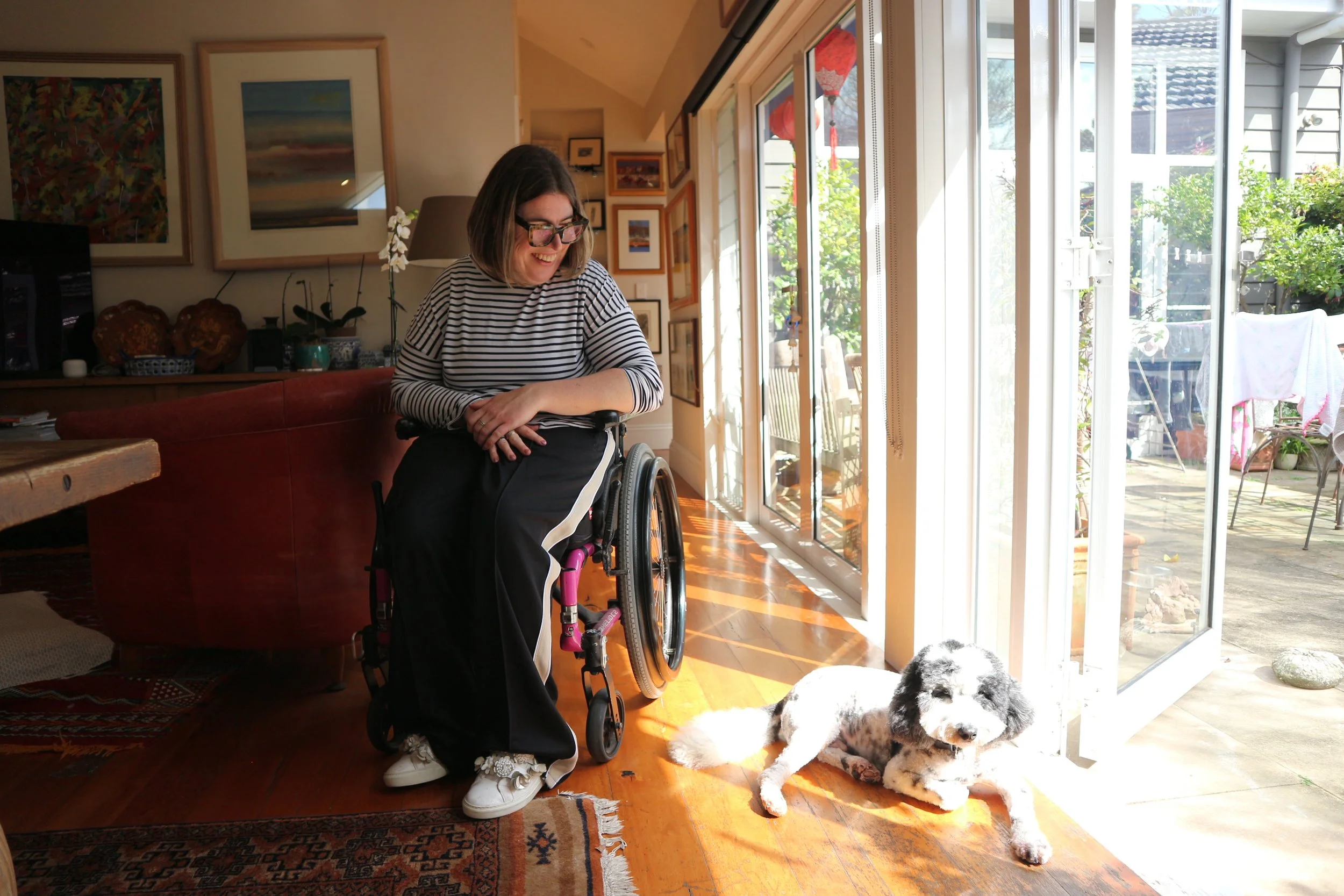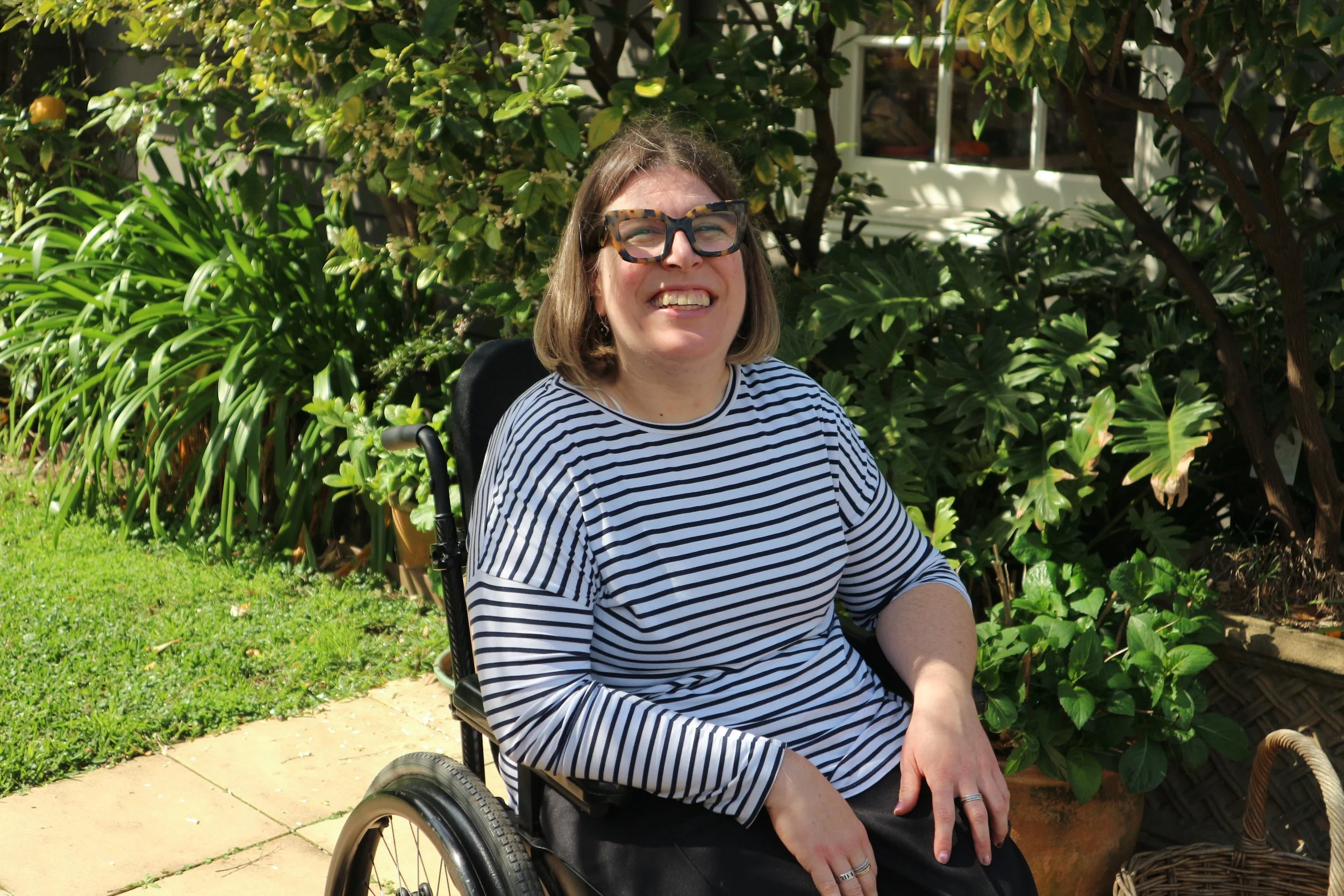Directing Change
Johanna Breaks Barriers Through Film and Fitness
Written by Acacia Soares - Content Writer at Strength to Strength Mental & Physical Healthcare
Film director and disability advocate Johanna Garvin, who lives with cerebral palsy, is challenging the attitudinal barriers that continue to limit people with disabilities on and off the screen.
Garvin said she is passionate about using filmmaking as a personal medium to share experiences and articulate ideas about life.
“It's exciting, the atmosphere you have on a set and when you're working with really passionate people,” she said.
“I think it can be a really positive medium in changing people's perceptions about different things, like what it's like to live with a disability.
“I think that makes filmmaking really exciting, and then, when something's out there, it's really great just seeing different people's reactions, and hopefully seeing the kind of discussions that people have after watching something.”
The Australian Bureau of Statistics reported that 5.5 million Australians are living with disability, accounting for 21.4 percent of the total population.
Garvin said her mother was a great role model, especially raising her as a single parent after her father passed away from cancer.
“I think because my dad died when I was 13, and he had a rare type of cancer, so to see how my mum managed everything after he died, and you know, as a single parent raising me and working full time, I think I really learned a lot from that,” she said.
“And just how watching her being resilient, I think I learned a lot from her in terms of having a strong work ethic and always having a positive attitude, no matter what life throws at you, always trying to find the positive in this situation.”
“They didn't wrap me up in cotton wool.”
Garvin was diagnosed with cerebral palsy at 12 months and was always supported at home.
“I was really lucky in that my mum and dad, they always said to me, if you want to do something badly enough, we can find a way to do it,” she said.
“They always wanted me to go to university, education was really important to them, and they never treated me any differently from any other children.
“I'm an only child, but they didn't wrap me up in cotton wool.”
The Screen Diversity Inclusion Network found that from 2021 to 2022 people with disabilities were under-represented in Australian film and TV productions, with 8.9 percent on-screen and 5.3 percent behind the camera.
Garvin directed her first short film, ‘The Milky Pop Kid’, in 2016, raising awareness on the physical and social barriers for people living with cerebral palsy.
“I was so excited, it was my first film out of uni, so I was quite nervous going into it,” she said.
“It just made me feel really proud with the fact that you know it really continues to resonate with people, and also it really gave me lots of confidence as a person.
“Nine years on, people are still watching it, which is really lovely.”
The film industry has made significant progress in representing people with disabilities, but it still struggles with misrepresentation and inauthentic casting.
“It makes me really frustrated and disappointed,” Garvin said.
“Because I think in those situations, I really feel like there's a missed opportunity there in terms of, you know, because you can really see when, when a person's misrepresented.
“We've made really good progress in terms of giving people opportunities, and yet there's still more to do, but it's great to see that there is movement and that audiences want to see more.”
“I'm slowly learning not to internalise people's negative perceptions of me.”
The Australian Cerebral Palsy Register Report 2023 found that in recent years, 55 percent of children born with cerebral palsy had no intellectual impairment.
Garvin said she has always challenged attitudinal barriers from people who underestimate her because of her disability.
“I remember in year 12, my drama teacher wanted me to join the year 11 girls,” she said.
“He was worried that I would bring my years ATAR down, but I ended up, I think, I came third in my year in drama.
“Luckily he had left before we started our HSC, and I had a new drama teacher who knew what I was capable of and who had high expectations of me.
“So just those sorts of attitudinal barriers come up quite a bit, but I'm slowly learning not to internalise people's negative perceptions of me.
“It's a gradual process, but I'm glad that I have that awareness now, to go, that's what they thought of me, it wasn't true, but that's okay.
“That's on them, not on me.”
From 2019-2021, Garvin directed the film ‘Rocky & Me’ and did a directors attachment on ‘Penguin Bloom’. This advocate now serves on the Cerebral Palsy Alliance Board of Directors and is employed as a Communications Coordinator at Create NSW.
Garvin has been a client at Strength to Strength for three years, working with personal trainer Isabel Ballard after losing some physical mobility during the COVID lockdowns.
Ballard said Garvin’s has overcome many physical barriers and increased her confidence since they started regularly exercising together.
“Jo had goals at the beginning,” she said.
“Getting in and out of the seat easier, getting in and out of her car easier.
“She never used to be able to walk to the cafe on her own because she was nervous about certain parts of the pavement that were uneven.
“But now she can walk to the cafe whenever she wants all by herself, if she’s working from home and wants to go out for a walk or a coffee, she can.”
Garvin has always loved boxing but faced further attitudinal barriers with her previous personal trainer who was unable to adapt the exercise to make it accessible for wheelchair users.
“Her trainer said that she couldn't box, and there was no explanation,” Ballard said.
“There was no reason, he just said that she couldn't box, and that was it, which is to me, ridiculous.
“But she can box, and she boxes very well, let me tell you.
“So I just think you know, with anything, if you want to do it, you're going to do it.”
“Don't find the challenges in the situation, find the solutions.”
Garvin trains with Ballard three times a week and has achieved many of her goals.
“I just love being able to box, I don't know what it is,” she said.
“I think it's just the fact that maybe, because often people have said, ‘No, it's too hard’, or ‘we can't do that because it's a group activity’ or whatever.
“But I’m doing it with Isabel so I love being able to box with her.
“I just love how she's so open-minded and I wish more people were like that.
“You know, don't find the challenges in the situation, find the solutions.”
Garvin said Strength to Strength has made a huge difference in all areas of her life.
“I've regained my mobility,” she said.
“I'm so much fitter. I can move quickly. My overall mood has boosted.
“I'm feeling so much more positive about life.
“It's really person-focused, and you just feel like a human being working with them.”
Photography by Acacia Soares.






